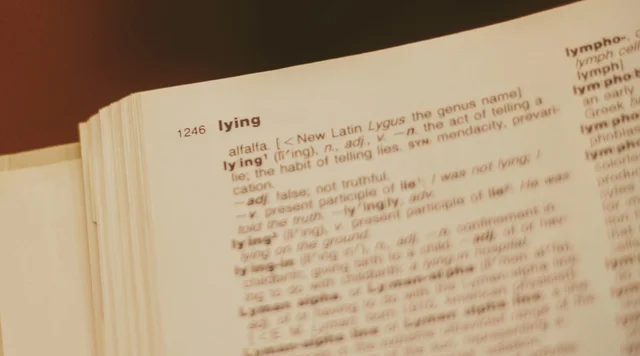
One common question in D. Del. cases is whether or not the plaintiff or counterclaim plaintiff must bring its witnesses to Delaware for deposition.
You'd think this would be completely settled by this point, but it still seems to come up from time to time. This post collects some of the relevant authority (Ctrl-D or ⌘-D to bookmark) and talks about a new opinion on this from last week.
Plaintiffs Must Bring Their Witnesses Here for Deposition
Several cases have held that, by default, a plaintiff must bring its "witnesses" here to the District of Delaware for deposition:
The general rule with respect to the location of depositions is that the plaintiff must produce its witnesses in the district in which the plaintiff instituted the action, unless [it] has shown financial hardship or inability to attend the deposition in that district.
Invensas Corp. v. Renesas Elecs. Corp., C.A. No. 11-448-GMS-CJB, 2012 U.S. Dist. LEXIS 92455, at *5-6 (D. Del. June 27, 2012) (quoting Aerocrine AB v. Apieron Inc., 267 F.R.D. 105, 108 (D. Del. 2010)); Maugain v. FCA US LLC, C.A. No. 22-116-MH-SRF, 2025 U.S. Dist. LEXIS 8286, at *4 (D. Del. Jan. 15, 2025) (quoting Invensas).
But: By Default, Depositions of a Corporation Occurs at Its Principal Place of Business
As Invensas explained, the default rule for plaintiff corporations was different—by default, those happen at the Court's principal place of business:
As to depositions of a corporation by its agents or officers, this Court has noted that there is a "general presumption" that such depositions "should ordinarily be taken at [the corporation's] principal place of business," but it has also recognized that this principle is subject to modification "when justice requires."
Invensas, 2012 U.S. Dist. LEXIS 92455, at *6.
D. Del. Form Scheduling Orders Resolve the Rule Conflict
In the abstract, these two rules seem to conflict (plaintiff's witnesses in Delaware, corporation & officers at principle place of business). If you are both a plaintiff and a corporate entity, which rule controls?
Luckily, our district court judges all have provisions in their form scheduling orders that address this by requiring plaintiff entities to also come to Delaware:
Location of Depositions. Any party or representative (officer, director, or managing agent) of a party filing a civil action in this District Court must ordinarily be required, upon request, to submit to a deposition at a place designated within this District. Exceptions to this general rule may be made by order of the Court or by agreement of the parties. A defendant who becomes a counterclaimant, cross-claimant, or third-party plaintiff shall be considered as having filed an action in this Court for the purpose of this provision.
Chief Judge Connolly's Form Scheduling Order for Non-Hatch-Waxman Patent Cases in Which Infringement Is Alleged; see Invensas, 2012 U.S. Dist. LEXIS 92455, at *7-8 ("The language used by this Court in its form Scheduling Order simply attempts, at the outset of a litigation, to provide a general default standard regarding the location of certain corporate depositions, taking into account the above-referenced legal principles [regarding default rules for plaintiff and corporate deposition locations].").
Thus, the Court has held that absent hardship or inability, a plaintiff's "witnesses" have to come to Delaware for deposition.
Some Confusion Remains
The above rules seem pretty clear, but a few things remain unresolved, to my knowledge.
(It's entirely possible that the Court has already put these issues to bed, in a deposition transcript or other ruling that I have not seen—please feel free to let me know if I'm missing anything.)
Does the Language Override the Case Law?
First, I've repeatedly heard the claim that the form Scheduling Orders "only require" parties and their officers, directors, or managing agents to come to Delaware for deposition.
In other words, parties may argue that the fact that the form Scheduling Orders require certain people to come to Delaware indicates that all others do not have to come to Delaware for deposition—regardless of the default rule set forth in Invensas, and that opinion's explanation of why the Court adopted this text in the first place.
That would seem to conflict with Invensas, but I don't recall seeing the Court address this head on yet.
"Witnesses," or "Deponents"?
Second, the default rule talk about plaintiff having to bring its "witnesses" to Delaware. But does that extend to all deponents associated with plaintiff, such as inventors and employees, even if they won't be trial witnesses?
I'm not sure there is widespread agreement on this, or that the Court has directly addressed it. But that distinction has played a factor in at least one instance. See 3G Licensing, SA v. HTC Corporation, C.A. No. 17-083 (D. Del. Aug. 27, 2019) (declining to order plaintiff's non-witness deponent to come to US, "given that she will not be brought to testify at trial").
What If It's a Compulsory Counterclaim?
Third, parties have repeatedly raised the question of what happens if a defendant has a compulsory counterclaim, but doesn't want to bring its witnesses to the District of Delaware? Does it have to waive or forfeit its counterclaim to avoid bringing its witnesses here?
This was first raised in Invensas itself, where Judge Burke held in a footnote that whether or not the counterclaim was compulsory does not matter—the rule still applies. Invensas, 2012 U.S. Dist. LEXIS 92455, at *8 n.4. Judge Fallon came to the same conclusion last year in Blue Sky Innovation Group, Inc. v. Forcome Co., Ltd., C.A. No. 23-129-MN, D.I. 113 (D. Del. Mar. 5, 2024).
As of last week, we have a third case on that same point, this time from visiting Judge Choe-Groves. She held that yes, this scheduling order provision applies even if where the counterclaims were compulsory:
Defendant cites to several out-of-district cases to argue that even if Mr. Abhishek is an officer, an exception is warranted because Morphle’s counterclaims are compulsory and compulsory counterclaimants may be exempt from traveling to the forum to be deposed. . . . The Court observes that there was no local rule or scheduling order provision at issue that required the depositions to occur in the forum and the court was examining whether to depart from the general rule that depositions occur at a corporation’s principal place of business. . . . Therefore, after examining the cases cited by Defendant, the Court does not conclude that an exception to the Scheduling Order is warranted on the basis that Defendant’s counterclaims are compulsory.
Optrascan, Inc. v. Morphle Labs, Inc., C.A. No. 24-649-JCG (D. Del. Oct. 10, 2025).
(It looks like the parties in Optrascan didn't know of or just didn't cite the prior times the Court has conclusively addressed this dispute—if they had, maybe they could have avoided that part of the dispute entirely.)
The Court did provide some relief, however. Based on a showing of hardship for a small company based in India, it ordered that the defendant had to bring its officers to the United States for an in-person deposition, but not necessarily to the District of Delaware specifically.
If you enjoyed this post, consider subscribing to receive free e-mail updates about new posts.





